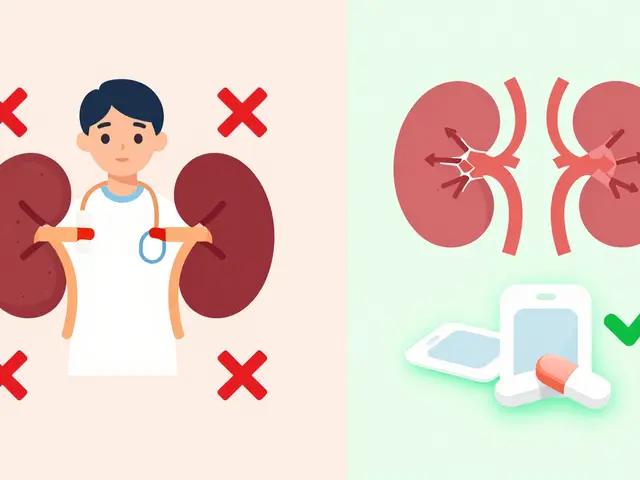Nationwide IT Outage Causes Major Disruptions in the UK
A significant IT outage has created widespread disruption across various essential services in the United Kingdom. General practitioners (GPs), pharmacies, and airports are among the hardest hit, causing inconvenience to thousands of people. The outage, which struck without warning, is causing operational chaos and hindering day-to-day activities.
Impact on General Practitioners and Patients
GP practices across the UK are experiencing major difficulties in accessing patient records and managing online bookings due to the outage. This has left many doctors struggling to provide timely and efficient medical care. The National Health Service (NHS) has issued a statement advising patients to attend their scheduled appointments unless explicitly told otherwise. However, only urgent queries should be directed to GPs, and patients are encouraged to use the 111 online service or contact the NHS by phone if necessary.
The inability to access electronic health records is a significant obstacle for healthcare providers. Many GPs find themselves resorting to manual record-keeping, which is time-consuming and susceptible to errors. Additionally, the disruption has affected the scheduling and management of appointments, compounding the chaos.
Pharmacy Services Under Strain
Pharmacies are also grappling with the fallout from the IT outage. Essential services such as accessing and processing prescriptions have been severely impaired. This has led to longer wait times for patients needing medication, prompting the National Pharmacy Association (NPA) to urge patience and understanding from the public.
Patients requiring repeat prescriptions or urgent medications are facing delays, adding to the stress and pressure on pharmacy staff. The NPA has reassured the public that efforts are underway to mitigate the impact, but patients should prepare for possible delays or disruptions in service until the issues are resolved.
Chaos at Airports
Travelers are encountering significant problems due to the IT outage, particularly at major airports such as Heathrow. Long queues and delays are becoming commonplace, as airport operations struggle to adapt to the sudden disruption. Some flights have been delayed or even canceled, leaving passengers frustrated and uncertain about their travel plans.
Heathrow Airport has implemented contingency measures to minimize the impact on passengers. While these measures are helping to some extent, travelers are still advised to check the status of their flights and allow extra time for airport procedures. Ryanair has also noted potential network-wide disruptions, which may impact flights across its routes.
Train Services and Retail Disruptions
While train services remain operational, they too are experiencing widespread IT issues that could cause future disruptions. Passengers are advised to stay informed about their journeys and to expect possible delays or changes to schedules.
Retailers are not immune to the effects of the IT outage, with prominent chains such as Morrisons and Gail's encountering payment processing issues. This has led to long lines and delays at checkouts, with some stores experiencing difficulties in completing transactions. Customers are urged to exercise patience and, where possible, carry alternative payment methods in case of continued disruptions.
Television Channels and Cybersecurity Insights
Adding to the list of affected services, some television channels have gone offline, disrupting entertainment and news broadcasts. This has only added to the confusion and inconvenience experienced by the public during this extensive outage.
According to cybersecurity firm Crowdstrike, the root cause of the IT outage is a defect in a recent content update. While investigations are ongoing, initial reports suggest that this update inadvertently triggered the series of disruptions affecting multiple sectors. Cybersecurity experts are working to resolve the issue and restore normalcy as quickly as possible.
Looking Ahead
The current IT outage in the UK underscores the critical role of technology in modern society and the far-reaching consequences when it fails. As affected services work to restore normal operations, there is a collective call for patience and understanding from the public. The complexity of the outage means that resolution may take some time, but efforts are underway to address the issue and minimize further disruption.
In these challenging times, the resilience and adaptability of both service providers and the public will be tested. Cooperation and clear communication will be vital in navigating the impact of the IT outage and restoring disrupted services. Updates on the situation will continue to be provided as new information becomes available.








Keiber Marquez July 19, 2024
This whole mess shows how the UK can’t even keep tehir own tech straight.
Lily Saeli July 24, 2024
We live in a world where a single digital glitch can lay bare the fragility of modern civilization. It reminds us that reliance on technology is a double‑edged sword, offering convenience while exposing vulnerability. When the systems we trust crumble, we are forced to confront our own dependence and the illusion of control. The chaos at airports and pharmacies is not just inconvenience; it is a symptom of a larger societal over‑reach. In the end, humility may be the only remedy to such high‑tech hubris.
Joshua Brown July 28, 2024
First, if you need a prescription, call the pharmacy directly, because online systems may be down, and you’ll avoid long queues; second, keep a backup list of your regular meds, so you can communicate with the pharmacist without needing electronic records; third, for travel, check airline apps frequently, as they update flight status in real time; finally, consider using cash at retailers, since card terminals could fail, and you’ll be prepared for any payment hiccup.
andrew bigdick August 2, 2024
Hey folks, I get why it feels crazy that GPs can’t pull up records, but remember there are still phone lines and paper notes that keep things moving. It’s a good reminder that we shouldn’t put all our trust in a single platform. Let’s all be a little patient and help each other out where we can, maybe by sharing tips on which pharmacies are still processing prescriptions manually.
Shelby Wright August 7, 2024
Oh dear, the nation is practically drowning in a sea of digital despair! Airports turned into labyrinths of angry travelers, pharmacies resembling a warzone of waiting patients, and GPs scrambling like actors without a script. It’s like the plot of a dystopian novel, only this time we’re the unlucky protagonists. If only someone had hit the reset button before we all lost our sanity!
Ellen Laird August 11, 2024
One must understand that such a systemic failure is emblematic of a broader malaise within our institutional frameworks; it is not merely a technical hiccup but a reflection of our collective complacency. The very foundations upon which we rely have been exposed, revealing an unsettling fragility that the average observer might overlook.
rafaat pronoy August 16, 2024
Looks like a rough day for the UK 😅. Still, a lot of us have dealt with similar outages and found workarounds – like calling ahead or using cash. Keep calm and carry on, folks 😊.
sachin shinde August 21, 2024
Reading the article, I couldn't help but notice a cascade of grammatical oversights: 'some television channels have gone offline' should be 'some television channels went offline', and the misuse of 'therefore' in the concluding paragraph is glaring. Moreover, the needless repetition of the phrase 'significant disruption' dilutes its impact. Precision in language mirrors precision in technology, and both are sorely lacking here.
Leon Wood August 25, 2024
Stay strong, UK! This outage is just a bump on the road, not a dead‑end. Every challenge is an opportunity to show resilience – think of the stories you'll tell once everything's back online. Keep supporting each other, keep the lines open, and remember: this too shall pass, and we'll emerge wiser.
George Embaid August 30, 2024
From a cultural perspective, this situation highlights how intertwined our societies are with digital infrastructure. Different communities may experience the impact uniquely, especially those who rely heavily on online health portals. It's a chance for service providers to consider more inclusive, low‑tech alternatives that respect diverse needs.
Meg Mackenzie September 3, 2024
It’s hard not to wonder if there’s more behind this so‑called ‘defect in a recent content update’. Who benefits when entire sectors grind to a halt? Some say it’s a test run for larger surveillance mechanisms, a way to see how quickly populations will bend to digital control. Keep your eyes open; the next outage might not be an accident.
Shivaraj Karigoudar September 8, 2024
In the contemporary ecosystem of information technology, the unprecedented outage across the United Kingdom serves as a seminal case study for systemic risk assessment and mitigation strategies. The confluence of multiple sectoral failures – spanning primary health care, pharmaceutical supply chains, and aeronautical logistics – underscores the interdependency matrices that are often under‑appreciated in siloed operational frameworks. From an enterprise architecture standpoint, the root cause identified as a ‘defect in a recent content update’ suggests a lapse in change control governance, particularly in the realms of versioning and regression testing pipelines. Moreover, the latency in incident response propagation points to deficiencies in real‑time monitoring dashboards and automated alerting mechanisms. It is imperative for the NHS and allied institutions to recalibrate their IT service continuity plans, integrating robust disaster recovery protocols that encompass both cloud‑native and legacy on‑premises assets. The pharmaceutical sector, grappling with prescription processing bottlenecks, must explore hybrid models that fuse electronic health record interoperability with manual verification workflows to ensure continuity of care. Airports, being critical nodes in national and international mobility, should employ redundant communication channels, perhaps leveraging satellite‑based data relays to circumvent terrestrial network outages. Stakeholder communication strategies also demand refinement; transparent, multi‑modal updates can mitigate public anxiety and curb misinformation proliferation. In parallel, cybersecurity practitioners should scrutinize the patch deployment lifecycle, incorporating threat modelling to preempt adversarial exploitation of similar vulnerabilities. The broader economic ramifications, while not immediately quantifiable, will invariably ripple through consumer confidence indices and fiscal forecasts. Consequently, policymakers are urged to allocate dedicated funding streams toward resilient infrastructure investments, prioritizing modularity and scalability. Finally, this incident should catalyze an industry‑wide paradigm shift toward a zero‑trust architecture, wherein verification is perpetual and implicit trust is minimized. By internalizing these lessons, the United Kingdom can fortify its digital backbone and safeguard essential services against future perturbations.
Matt Miller September 13, 2024
Excellent breakdown – the points about change control and redundancy really hit home.
Fabio Max September 17, 2024
Great analysis! With these improvements, future outages will be much less disruptive for everyone.